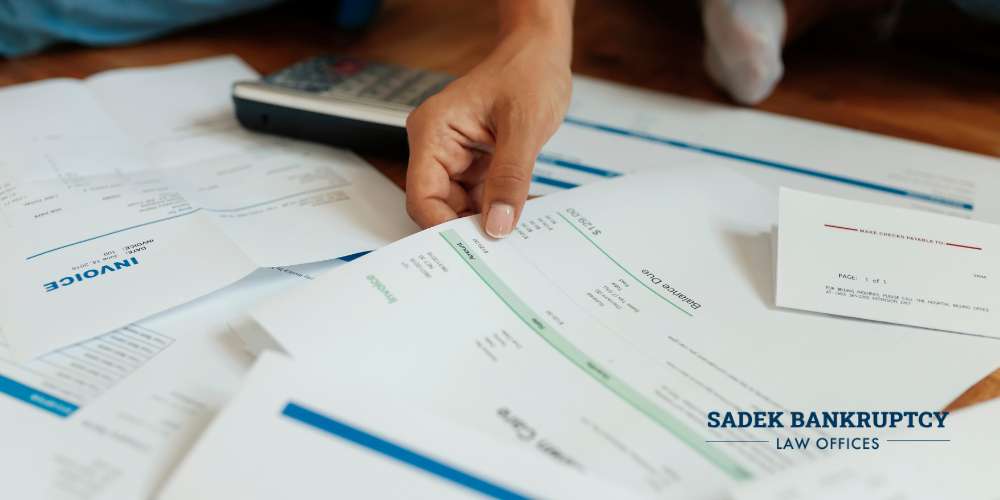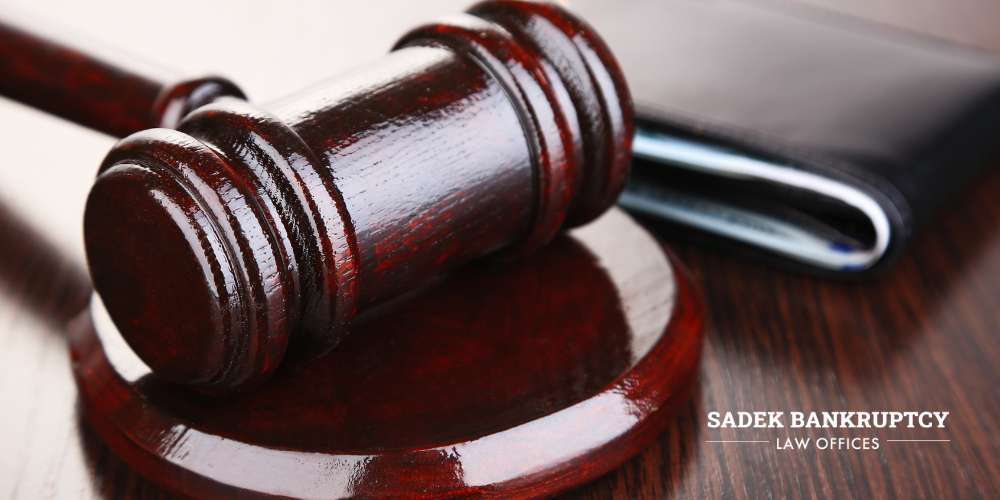Pennsylvania wage garnishment law protects consumers from most forms of wage garnishment, including most forms of consumer debt. But what situations allow for wage garnishment in Pennsylvania? What percent of your wages can legally be garnished? At Sadek Bankruptcy Law Offices, we’re here to help you understand your rights.
We’re proud to assist those facing financial hardship with challenging garnishment orders, negotiating directly with creditors, and filing for bankruptcy if appropriate. Whether you’re behind on child support, rent payments, or tax debt, we can step in and protect your legal rights.
Call (215) 545-0008 today to speak with a Philadelphia attorney experienced in Pennsylvania wage garnishment law. Your initial consultation is free and may be the first step toward your financial freedom.
What Is Wage Garnishment?
Wage garnishment, sometimes called wage attachment, is a legal method of collecting unpaid debt by taking money directly from a person’s paycheck. Through this process, an employer must legally withhold a portion of the employee’s earnings and send it to a creditor, government agency, or other party owed money.
This typically happens after a court order is issued. However, certain types of debt, such as child support or federal taxes, may trigger garnishment without going to court. The wage garnishment process continues until the debt is paid off or other legal action is taken to stop it.

How Does Wage Garnishment Work in Philadelphia?
In Pennsylvania, most creditors cannot garnish your wages without getting a judgment from a court. Even then, they can only garnish your wages if the judgment is related to unpaid rent. However, if someone is behind on tax payments or child support, the creditor does not need a judgment to get a wage garnishment. They can simply deduct the amount owed from one’s paycheck by working with their employer.
The amount withheld is typically a percentage of the debtor’s wages, depending on the type of debt and state and federal law.
Pennsylvania Wage Garnishment Laws
Under Pennsylvania law, garnishment is heavily restricted. Pennsylvania statute 42 Pa. C.S. § 8127 makes the state one of the most debtor-friendly in the country. In Pennsylvania, creditors cannot garnish wages for common consumer debts. These include credit card debt, medical bills, auto loans, personal loans, payday loans, and even defaulted mortgages.
However, Pennsylvania wage garnishment laws do permit garnishment under the following circumstances:
- Unpaid child support
- Spousal support obligations relating to divorce distributions
- Unpaid state or federal taxes
- Rent owed on a residential lease (with a court judgment)
- Restitution or court fines related to criminal cases
All garnishments must comply with federal regulations, which include limits on how much of a worker’s earnings can be garnished.
Wage Garnishment for Unpaid Taxes
The IRS and the Pennsylvania Department of Revenue have the authority to garnish wages for income or state taxes without going to court. This is done through administrative garnishment.
In Pennsylvania, the Department of Revenue may withhold up to 10 percent of a person’s gross income for unpaid taxes and related fees owed. Before the garnishment begins, individuals will receive fair notice and have the opportunity to set up a payment plan to resolve the debt. Failure to respond may lead to direct wage deductions from your employer.
Wage Garnishment for Unpaid Child Support
If you fall behind on child support, your wages can be garnished automatically based on a prior legal obligation or divorce decree without a separate court judgment.
Under both federal law and Pennsylvania law, up to 50-65% of your disposable earnings may be garnished for unpaid child support. The exact percentage depends on whether you also support another child or spouse and how long the payments have been overdue.
Wage Garnishment After a Court Order
In most Pennsylvania cases, a court order is required to begin garnishment. This typically applies to rent on a residential lease, including any residential lease fines that are outlined in the lease agreement and approved by the court, as well as court-imposed restitution and criminal fines.
To garnish wages, the creditor obtains a court judgment, then requests an order to withhold earnings. The wage garnishment order is then sent to the employer, who must comply with the order or face legal penalties.

How Much of My Wages Can Be Garnished in Pennsylvania?
The amount that can be garnished from an employee’s wages is governed by federal laws and garnishment restrictions under Pennsylvania statutes.
General limits:
- Up to 25% of disposable income, or
- Any amount over 30 times the federal minimum wage (whichever is less)
Specific limits:
- Child or spousal support: Up to 65%
- Federal student loans: Up to 15%
- Unpaid taxes: Up to 10% of gross wages
If your income falls below the federal poverty guidelines, garnishment may not apply.
Who Can Garnish Wages Without Notice in Pennsylvania?
Most creditors cannot garnish wages without your knowledge, but important exceptions exist. Federal or state income taxes and child support payments may be collected through administrative garnishment. This allows your employer to begin withholding money from your paycheck without a lawsuit.
However, even in these cases, appropriate legal procedures must still be followed. You are entitled to fair notice and must be allowed to object or file an exemption claim before the garnishment begins.

How to Stop a Garnishment in PA
If you’re dealing with wage garnishment in Pennsylvania, several legal options are available to stop or reduce the deductions from your paycheck. You may be able to negotiate directly with the creditor, request a payment plan, or file an exemption claim based on financial hardship.
Another option is to file a formal objection in court. This is especially important if the wage garnishment order was issued in error or the amount being withheld is excessive. This is especially important in cases of wrongful garnishment, where your wages are garnished for a consumer debt.
In many cases, seeking help from a Pennsylvania wage garnishment attorney can make the difference. An attorney can evaluate your situation, identify valid legal defenses, and file any necessary paperwork on your behalf. At Sadek Bankruptcy Law Offices, our PA debt relief lawyers can guide you through these options, protect your income, and help you regain control of your financial situation.
Can Bankruptcy Stop Wage Garnishment in Pennsylvania?
Yes. Filing for Chapter 13 or Chapter 7 bankruptcy in PA stops most wage garnishments immediately. This legal protection, known as the automatic stay, is designed to protect consumers by halting all collection efforts, including deductions from your paycheck or withdrawals from your bank account.
Bankruptcy can stop garnishments related to unpaid taxes and back rent. For individuals struggling financially and unable to meet their obligations, bankruptcy can provide critical relief and a chance to reset. However, it’s important to note that garnishments for unpaid child support or owed alimony will continue, even after filing.

Contact Our Experienced Philadelphia Bankruptcy Law Firm Today
If you’re facing wage garnishment and your finances are upside down, there’s no need to wait another month for debt collectors to take more from your wages or freeze your bank account.
We at Sadek Bankruptcy Law Offices offer debt relief solutions to the residents of Philadelphia, Allentown, Bucks County, and beyond. Our team can provide you with legal options, like filing Chapter 7 or Chapter 13 bankruptcy in PA, to stop garnishments, end harassing collection tactics, and build a path to long-term relief.
With offices throughout Pennsylvania and New Jersey, our attorneys are ready to help you today. Call us at (215) 545-0008 or complete our online intake form to schedule your free consultation with our experienced wage garnishment legal team.





